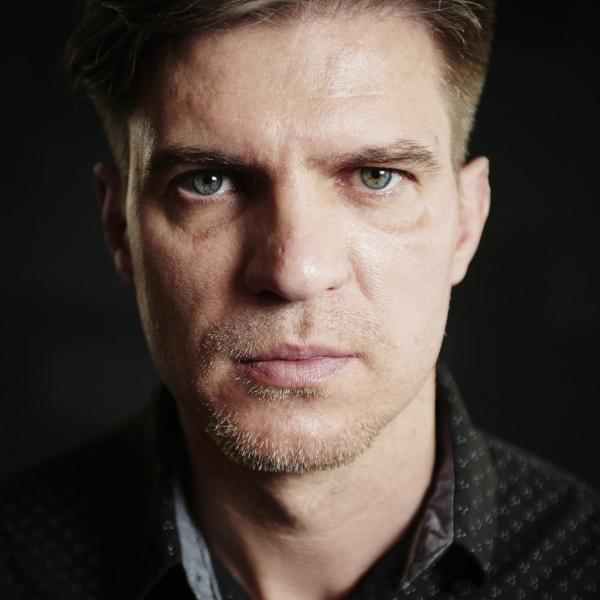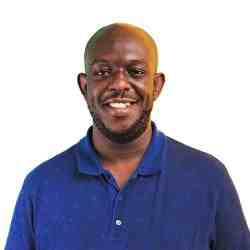Introduction
To hold transnational crime offenders accountable, Paul is developing an open global "intelligence" agency. His global network of investigative journalists, scientists, programmers and civic hackers builds necessary technology, do-it-yourself toolkits and provides free access to data, encouraging and enabling everyone to investigate the causes they care about.
The New Idea
In international spaces governed by weak international protocols and bilateral agreements, organized crime operates across-borders under no formal constraints and with great adaptability, knowing that law enforcement is national and only investigates crimes that have an impact within their borders. Paul is shrinking the reach and influence of organized crime by following illegal flows of money and empowering citizens to expose global crime.
Paul is assembling a global movement of civic investigators from all paths of life: scientists, programmers, civic hackers, journalists, and ordinary citizens are equipped with tools and the global data infrastructure necessary to expose the world’s best-hidden dirty money and crime schemes. He believes that while not everyone can write press articles, by leveraging human beings’ inherent curiosity and sense of justice, everyone can contribute to an investigation. And as long as citizens are aware and involved in investigating wrong-doings, crime is deterred from happening.
Paul learned early on that in order to track, expose and stop criminal activities, one needs to fight the enemy with their own weapons. Mimicking sophisticated organised criminal networks that transgress national borders, he built the largest decentralised and collaborative global network of 400 local investigative journalists across four continents. He also developed standards, engaged programmers, data scientists, activists and librarians, and built a safe and enabling technological infrastructure for them to detect and analyze patterns of criminal activities. Paul proved that when practiced collaboratively, investigative reporting acts as an effective watchdog against organised crime with the ultimate aim to democratize the investigation process. In order to incentivize more people to dig into the data collected and uncover crimes, he plans to gamify the investigative process and make it easy for anyone to play.
Through public exposure and daily reporting, Paul is increasing the cost of corruption, affecting and even stopping criminal businesses and their scaling. Moreover, he is educating and empowering people to exercise their true citizenship. Last but not least, Paul partners with law-enforcement institutions, banks and intelligence agencies so that they increase the effectiveness of their work, while also enabling intelligence data to be globally shared and open sourced.
The Problem
Corruption and illegal money flows remain the world’s biggest hidden tax, robbing entire populations of resources, public money, as well as economic opportunities and political stability. The United Nations Office on Drugs and Crime (UNODC) estimates that between 2 and 5% of global GDP is laundered each year, the equivalent of 715 billion to 1.87 trillion euros. Moreover, it is the poorest who often pay the price of high-level corruption and are co-opted to participate in organised crime, remaining silent for their own survival.
Money is the best connector: incentivising criminals to work as an effective, strong and sophisticated cross-border network. Organized crime follows the "balloon effect": if squeezed in one country, they quickly adapt, replicate and seize new opportunities, exploiting the benefits of the technological revolution. For the same interests, banks and financial institutions remain accomplices to global corruption every time they engage with suspicious citizens. They know that money can hire the best accountants, financial services professionals and lawyers to protect them. Moreover, criminals work within public systems, obtaining protection from public officials, influencing political decisions and infiltrating state structures and legitimate businesses.
Law enforcement globally does not have the appropriate means to fight transnational organised crimes. First, police officers and intelligence analysts have not mastered cross-border, multi-language, open-source intelligence. Second, the system is designed to be slow. By the time the officer has filed the requests and received cross-border information from one country, criminal networks have often already erased marks and replicated elsewhere. Third, police forces must act in the interest of their nation or the EU in the case of Europol, thus limiting resources and the priority for cross-border investigations. Interpol is just a global mechanism of information exchange. Fourth, often geopolitical relations render cooperation between law enforcement offices impossible, even if both countries' national interests might be hampered by that criminal network. Therefore, criminals operate knowing that police and judiciary don't have an international mandate, with the majority of countries making little or no progress in ending corruption. More than two-thirds of the 180 countries included in Transparency International’s Corruption Perceptions Index in 2017 scored below 50, with an average score of 43, where 0 is highly corrupt and 100 is very clean.
Having travelled across the world, from the midst of Mexico’s drug cartels to the core of human trafficking networks in the Balkans, Paul realised that law enforcement looks at these problems too much from the legal standpoint, waiting for permission to act. Criminals cannot hide completely. They leave tracks and we can keep up with them if we are fast enough and use local networks, backed by technology and shared databases to follow the money. If law enforcement is not ready for this change, he figured investigative journalists could be the catalyst in defining and mainstreaming the 21st century skill set for investigating crime and corruption.
The Strategy
In the system of fighting organized crime and corruption, Paul is redefining and strengthening two key roles: investigating and exposing crime; and fostering law enforcement. He connects and breeds a new generation of global investigative journalists and engages programmers, data scientists and librarians to develop and feed the technological infrastructure with data necessary to follow the money and expose crime. In doing so, he empowers citizens to pursue their own investigations and pushes for changes in the law enforcement practices.
Paul modelled the Organized Crime and Corruption Reporting Project (OCCRP) using insights from his investigations on how cross-border criminal networks are organised. Thus, he built a collaborative community of 400 investigative journalists spread across Europe, Africa, Asia and Latin America that is bigger, more effective and efficient and ultimately, more global. To counter the diverse journalistic standards in various parts of the world, since 2007 he has been investing in developing local talent and has instilled a more collaborative, professional, multicultural and cross-sectorial work culture, which is now pollinating the entire sector. In addition to providing journalists with financial resources to undertake great cross-border investigations, he offers them a free support platform to make their work more efficient and faster, access to OCCRP editors, translators, programmers, researchers, commercial databases, safe online spaces and tailored technological innovations. Moreover, journalists are provided with professional training, including physical safety and cyber security courses and media insurance.
From his own experience, Paul knew that often public data is not always easily accessible or cheap. Yet, it is the main ingredient of an investigation. This is why he engaged hundreds of professionals with complementary skills such as programmers, researchers, lawyers and data scientists to gather large open databases, connect them and develop open global infrastructure and provide tech support. Paul has also already involved 50 librarians from the American Librarians Association to support in analyzing enormous amounts of information. Knowing that the force of his solution lies in making it available for everyone, to enable all citizens to conduct their own investigations, OCCRP tech team is also creating new technologies and tools. For example, the Investigative Dashboard (ID) is a global research tool which allows everyone to look for data about companies, leaks, trials. ID has 65 Million database records, over 6 million searchable text documents including government company registries, land and asset records and litigation in national and international courts. ID only contains publicly available data useful for the initial phase of the investigative process, being followed by editing, fact-checking, discussing with lawyers. Data only becomes valuable together with the whole investigative process and not just by itself and they have developed in-house security manuals.
As security is a day-to-day concern for OCCRP, they also have other data vaults secured with multiple level encryption accessible only to vetted investigators. To analyze and connect cross-border information faster, Paul also created Visual Investigative Scenarios (VIS), an online data visualization platform where investigators, activists, law enforcement officers and citizens can easily map complex business or crime networks and translate them into simple, universal visual language for the public. To analyse the increasing information available and hundreds of leaks received every day, Paul is working to develop automated processes for pattern recognition and machine learning tools that could surface networks of people and patterns of criminal activities more easily.
Aware of the fact that coordinating journalism with activism increases the impact of their stories, Paul started to work with activists to pressure and even sue governments to increase the amount of data available online (currently about 30%). Since 2017 he developed an alliance with Transparency International called The Global Anti-Corruption Consortia, which ensures that before OCCRP publishes a new investigation, TI sends it to authorities, prepares policy papers and responses to stimulate policymakers' action.
Thanks to OCCRP's partnership with key media outlets such as BBC, The Guardian or Financial Times, their investigations are read by 200 million people and have won over ninety international and local awards, including the Global Shining Light Award or the Daniel Pearl Award. Amongst the more noteworthy journalistic endeavors in recent years, OCCRP’s coordinated efforts led to the releasing of the “Panama Papers”, an unprecedented investigation that revealed the offshore links of some of the globe's most prominent figures.
Moreover, since 2009, OCCRP’s investigations have led to the freezing or seizing of assets amounting to US$5.7 billion, the launch of 84 criminal investigations and government inquiries and 147 arrest warrants issued with 7 subjects on the run. They also generated 20 major sackings and resignations, including the President of South Africa and CEOs of companies such as Danske Bank or TeliaSonera and over 1,400 company closures, indictments and court decisions. Their reports include detailed information on the investigation process and sources, as well as toolkits and blueprints for readers to be able to undertake their own investigations. Given the financial gains for society, OCCRP's annual budget of 4,5m euro funded mostly through governmental grants and private foundations has returned more than 59.700% to governments through seizures and fines.
Going forward, to scale its impact, Paul aims to mainstream these tools and work practices across law enforcement institutions so that they can work faster by distilling organized crime patterns and neutralize situations to prevent business as usual from repeating itself. OCCRP has been providing over a hundred of workshops for police, prosecutors and banks’ compliance officers to share their open know-how and tools and support them in improving the impact of their work. On the other hand, daily reporting and read-time alerts to journalists is key in informing citizens earlier about the real corrupt beneficiaries of crimes. In this way, regardless of law enforcement action, public exposure can influence long-term changes in public attitudes, protests against, and even election defeats for discredited parties or politicians.
Paul believes that law enforcement will come when citizens act as active changemakers who do not stop at understanding the topography of the political, business, or criminal worlds that influence them. Instead, they draw inspiration and context and take action. In the next years, he plans to unleash the full potential of the Open Global Intelligence Agency. By providing data, infrastructure, gamified investigations, a network of specialists and do-it-yourself toolkits, he wants to to enable all readers and citizens across the world to investigate the causes their care about.
The Person
Growing up in Deva, a rather small industrial city in Transylvania, Paul was a non-stop reader: from his favorite adventure books to complicated technology books. Inspired by his readings, he has always been on a quest to discover the world. When he was 11, he ran away from home for a whole summer and explored Romania with a friend. To make his way, he used his entrepreneurial spirit and creativity to sustain himself, selling fishing hooks and nylon strings to local children.
A punk fan and an adventurer, in high school Paul left home for good and started to support himself, giving private tutoring classes and taking on other part-time jobs. He led a literary circle and started to read investigation reports. Later on, while studying at the Faculty of Journalism and English in Timisoara, he led a sit-in movement to address the issue of students housing and started his first investigation to uncover the corrupt students housing system.
After university, Paul apprenticed at a major Romanian newspaper office in the capital. While being in charge of the investigations unit, he discovered corruption inside the newsroom, as his editor would sell his stories to the corrupt criminals before publishing them. Various fellowships in London, the US and Vienna enabled him to deepen his understanding of criminal networks and how they operate and solidified his role as an investigative journalist combating transnational crime syndicates. In the US, after uncovering criminal networks in the field of child adoptions, he understood the impact his work can have on breaking such businesses by ruining reputation or exposing certain activities. He also discovered that key assets such as major global databases (Orbys, Mintglobal, etc.) were not sufficiently exploited by journalists, often because of lack of awareness and skills. He started using the power of these assets to expose global corruption and organized crime across the world and understood that information from one geography can be used in others.
Back home in Romania, in 2001, he created the Romanian Center for Investigative Journalism and later RISE Project as a platform for investigative reporters and hackers to collaborate while avoiding political pressure and interests. After meeting his OCCRP co-founder Andrew Sullivan, the two developed their first cross-border investigation to uncover how electricity traders in the Balkans abused their power by charging high costs for low-quality electricity to the regions’ poorest people. Encouraged by the positive feedback, Paul further refined his vision and all pieces of the puzzle fell into place.
Paul is the recipient of numerous awards and fellowships, including the 2004 Knight International Journalism Award and the Investigative Reporters and Editors Award, the 2007 Global Shining Light Award, the 2008 Knight International Journalism fellowship and 2009-2010 Stanford Knight Journalism Fellowship. Apart from OCCRP, Paul is a board member for the Global Investigative Journalism Network and was a main driver of the Panama Papers and the Russian Laundromat.




